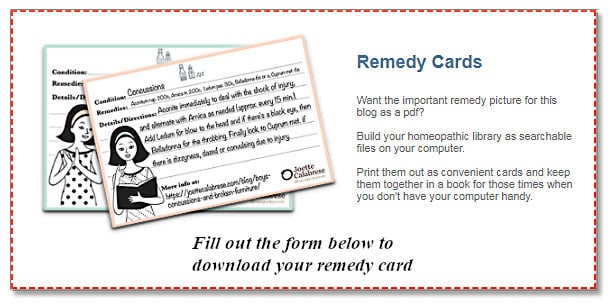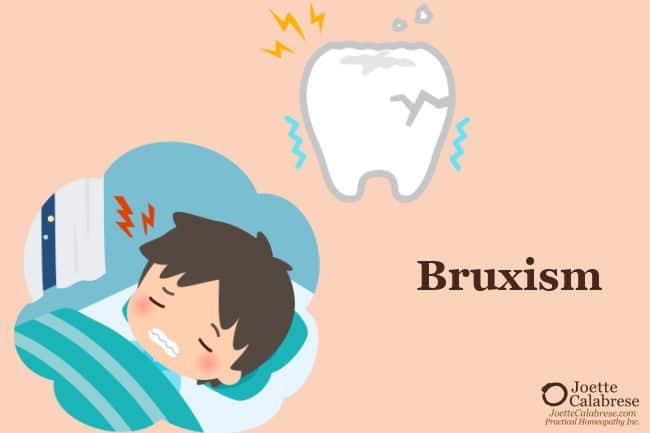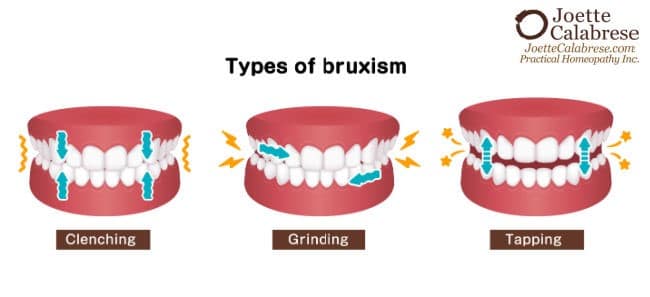There’s nothing like a fancy word to make a condition sound exotic. However, bruxism is far from exotic. In fact, it’s pretty common, especially in children. Bruxism is just another way to say grinding the teeth.
It’s not uncommon that children will grow out of grinding their teeth. Although, some individuals remain plagued with the condition well into adulthood. For still others, the condition commences in adulthood.
While this condition can certainly be uncomfortable, it can also be damaging. Temporomandibular disorders (TMDs) may result, such as the jaw pain of TMJ. Teeth can also crack under the repeated stress of grinding or clenching, and cracks lead to tooth decay and loss of structural integrity.
With adults, often, the answer can be a simple lifestyle change, as some causes of bruxism are:
- Drug use — Most notably, anti-anxiety and anti-depression drugs such as selective serotonin reuptake inhibitors (SSRIs) can result in tooth grinding.
- Chocolate
- Coffee
If one finds drugs, chocolate or coffee are affecting their dental health, then common sense dictates one should cut back or eliminate the culprit! Right?
It reminds me of the old doctor joke: “My arm hurts when I do this!” Doc says, “Then don’t do that!”
So, if coffee makes one grind their teeth, don’t drink it! I’ve reduced my coffee intake and added ingredients to make it a more enriching beverage. In fact, I did a Monday Night Live event on this topic, and my Mighty Members received my recipe — along with my rationale —earlier this week.
Other cases of bruxism may stem from:
- Food intolerances and allergies
- Anxiety
However, in children, a more common cause of bruxism can be parasites — pinworms, to be exact. I hate to tell you folks, but if one child has pinworms, then it's not uncommon that the whole family may get them.
Believe it or not, a common culprit is sharing popcorn! The female worms cause such intense itching in the rectum that a child (or anyone for that matter) can barely contain their need to scratch, particularly at night. And then the eggs are under the fingernails.
Unless one performs a good, old-fashioned morning scrub under those nails, then reaching in a shared bowl of popcorn can spread the eggs.
But I don’t want people to freak out! This is life. This is nature. We don’t want to live in fear of all the little critters surrounding us daily. In fact, one of my most ardent messages is to stop fearing infections. Did you hear me? I’ll repeat it in case you didn’t hear me: Stop fearing infections! Our bodies are designed to handle these things … sometimes they just need a polite, gentle nudge.
When it has been established that pinworms are present and there is grinding of the teeth (especially at night), one such nudge can be Cina maritima 30, utilized twice daily. Usually, this would be continued over many weeks. But as always, we stop using a medicine when significant improvement in the condition is observed — when the sufferer is “very much better.” We also halt the medicine if no improvement at all is seen (after its use for an adequate period of time).
However, pinworms are not required to be present along with the bruxism to call upon Cina. As is often the case in homeopathy, the etiology doesn’t necessarily affect the medicine choice.
Indeed, Cina is one of our quintessential childhood remedies. But it can also be utilized for adults. Although, with adults, it is a good idea to begin by reducing exposure to the aforementioned extrinsic influences, such as coffee, chocolate or drugs, before moving forward into utilizing a homeopathic medicine.
But remember what I often say: Just because you know the medicine doesn’t mean it’s the one you use! I always encourage those employing homeopathy to do their homework. Read about Cina in a materia medica to ensure it’s a relatively tight fit for the case! It’s but one of the many medicines that can be utilized for bruxism. There’s generally more than one way to peel an orange in homeopathy. In fact, that’s one of the beauties of this paradigm!
Pass on the good news of homeopathy!
Warmly,
P.S. Want to learn more about using a repertory and materia medica? Of course, you do! Get acquainted with both books through the Gateway to Practical Homeopathy I and II. Learning through my study group curriculum is the best way to begin developing your homeopathy skills. And I should know. Creating a study group is how I learned decades ago.
And why not join Joette’s Mighty Members to dive deeper into these topics. You’ll receive extra weekly blog posts (in my Memos to Mighty Members), exclusive videos from me, daily inspirational quotes, free gifts and a private social center to discuss homeopathy with like-minded folks — away from the prying eyes of public social media. Plus, so much more. And all my Mighties qualify for a 10% discount on course purchases. Don’t be left behind! Join us!







Thank you, Joette!
Is “Cina” you mention in this post the same as “China” and “Cinchona”?
China and Cinchona are not Cina.
Alcohol, especially wine can cause bruxism.
I know for a fact that the jaw tension (from caffeine) and grinding were causing my ear ringing.
Unfortunately with all the stress of the last few years, i am hearing from people who you would never think of as having anxiety, having actual panic attacks…that level of stress and anxiety seems like it could also cause bruxism. So there are probably many people suffering from this now.
I’ve read a previous blog post about using Cina 6c for pinworms in children. Can you please clarify? Would it be Cina 6c for pinworms but Cina 30c for pinworms w/ bruxism? Thank you!
Both potencies are applicable.
My special needs 27 year old son just started grinding his teeth while he is awake. . Cina could fit him in many ways but the Bruxism is while awake not asleep. Is that difference enough to look for a different remedy?
I would urge you to read up on the remedy before making a decision. If you have my Materia Medica, read about it there. If not, you may find free materia medicas on line such as Boericke or Kent. If enough of the remedy picture matches enough of the condition you’ll be in good stead.
Would Cina also work for the “tapping” kind of bruxism? All other places only mention grinding and clenching, and even my dentists said hitting teeth while I sleep is not bruxism and probably some neurological issue.
The neurologist said this is jaw myoclonus suggested pregabalin but the side effects were very bad, so I would like to try homeopathy.
I keep fracturing teeth and sometimes I jolt awake by biting my tongue very hard. THere are also suspicions that it might be because of bad posture – I have the habit of reading in bed for HOURS while lying down on my belly, trying to get used to read while sitting.
Although the amteria medicas I saw online about Cina focus more on children, there are some matches for symptoms, like GI distress.
Joette, would you happen to know some homeopathy suggestions for jaw myoclonus/tapping bruxism (doctors can’t seem to agree in my case…)? I’ve been doing this for at least 14 years now and already had to replace 3 teeth with implants!
Thank you for all your content, I like the practical approach to homeopathy!
I suggest you look at stimming and homeopathy. It could very well be a remedy in that category would help.
This reply is late, but I also suffer from faciomandibular myoclonus during sleep. It is very painful. I have had success with Ignatia 200 and Phosphoricum acidum 200. I would encourage you to look up both in a materia medica and use the one that best fits.
Hi there, Started this remedy and taking as prescribed for about 3 weeks now, no change, but I realize bruxism (or in this case Parasites) is a deeply rooted issue. Approximately how many weeks would you suggest to “stay the course and be patient” before ending and trying a new remedy?
Thanks so much Joette!!
I understand the phrase, “Use what you have until you get what you need,” but would you have any serious reasons not to recommend Cina 200, if that is the only potency I have right now? I intend to get the 30.
Thanks and best!
I’ve not used CIna 200c and find the lower potencies to be useful but the way we learn is to give something a try.